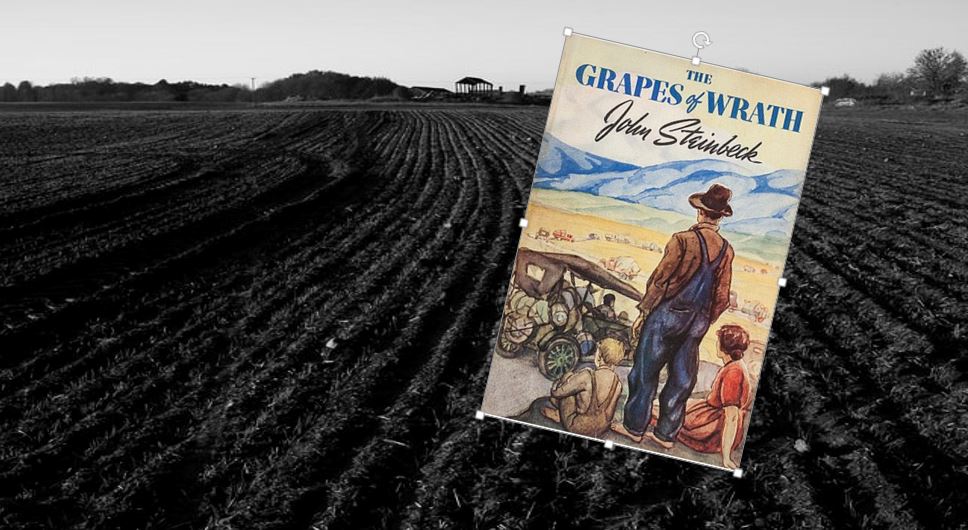Climate Crisis and The Grapes of Wrath
Writers, people with imagination to extrapolate societal attitudes, saw our current climate situation coming from so very many years ago. Classics and tales of climate change come together in so many works. The Guardian calls The Grapes of Wrath by John Steinbeck “The mother of all eco-fictions, a book that chronicles a man-made climate disaster before we knew what to call it.” https://www.theguardian.com/books/2020/feb/12/top-10-books-of-eco-fiction
Back To the Stuff You Read in School
In a previous post, we revisited the torturous reading assignments from high school. Whether you read them or not, you got to know the story a bit from putting up with the lectures in class. Take yourself back to when you had to read The Grapes of Wrath. Steinbeck describes the lives of victims of a dust bowl. The Midwest farmers of the time, through unsustainable farming practices, become victims of their lack of understanding of sustainable methods of cultivating the land.
How The Dust Bowl Happened… very briefly
In the 1930s, a change in weather patterns resulted in a hot, dry climate in places where that hadn’t happened in human memory. The folks who farmed the wide-open prairies, where the soil was once protected and held in place by grasses, tilled the land mercilessly. With the topsoil exposed, the winds blew it into the atmosphere, multiplying the effect that was the downfall of their crops and farms, exacerbating the dust bowl.
How Its About Climate Change
Although The Grapes of Wrath is certainly about climate change, it’s not normally analyzed for its commentary on human caused climate change. Its analysis is usually a commentary on how people react to circumstances beyond their control.
Before the start of Steinbeck’s novel, the Joad family lived their lives based on the cycles of the earth and the climate. As farmers, it was useful and valuable for them to move with those cycles. Once they let go of the farm, they became victims of those cycles. Weather continues to victimize the characters, even late in the book when, after crop picking season, the rains come.
I imagine people like the Joad’s felt anger and bitterness that their circumstances forced them to use those unsustainable farming practices. Their lack of knowledge of any other way, and the spiraling circumstances, led to the bad farm yields and the loss of their farms. pushed into it Steinbeck’s book is an eco-fiction tale of a most heartbreaking variety. The people had the power to mitigate the damage from the climate fluctuations. People then, as do people now, believed themselves to be the masters of their environment, instead of part of it. Learning to work with Mother Nature, instead of dominating it, might have seen them through the droughts. It might have allowed them to feel less victimized.
Have you read The Grapes of Wrath? Had you considered it a commentary on climate change? Have you ever felt a victim of the weather? Tell me about how you see our society trying to dominate Mother Nature instead of working with her?
